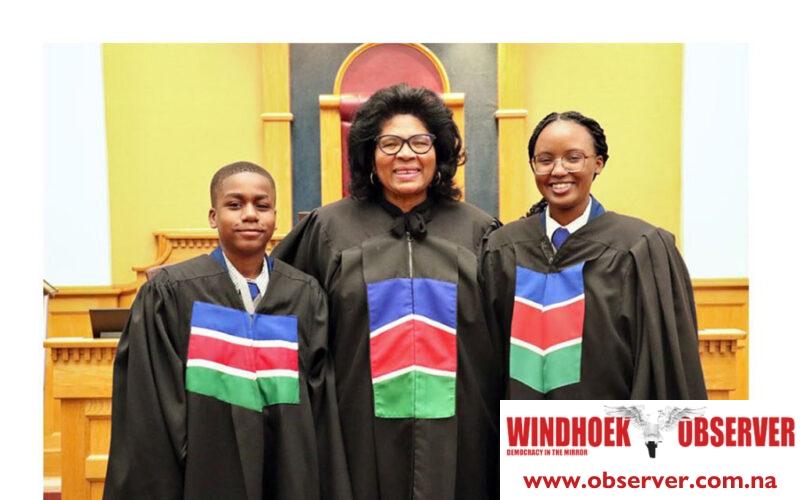Niël Terblanché
More than 60 learners from all 14 regions of Namibia are gathered in Windhoek as part of the 6th Children’s Parliament that started on Friday.
The special parliament is a demonstration of Namibia’s commitment to empowering the youth and transforming the education system to secure a brighter future for all children in the country.
President Nangolo Mbumba opened the week-long session, which will be held under the theme “Transforming Education in Namibia.”
It was a historic event because it was both the President’s first and last time addressing the Children’s Parliament.
In his speech, President Mbumba congratulated the newly elected leadership of the 6th Children’s Parliament, including the Speaker, Deputy Speaker, Chief Whip, Assistant Whips, Chairpersons, Deputy Chairpersons, and Secretariats of various committees.
The Children’s Parliament elected Jane Phiri from Hardap Region and Michael Ajiboso from Kavango East as Speaker and Deputy Speaker of the 6th session.
Mbumba stressed the importance of the specific platform in preparing Namibia’s youth for future leadership roles by involving them in legislative processes.
“This Children’s Parliament exemplifies the proverb by the Roman philosopher Seneca: ‘Luck is what happens when preparation meets opportunity.’ Similarly, an African proverb says, ‘Tomorrow belongs to the people who prepare for it today,’” Mbumba said.
He paid tribute to the late Dr Mose Tjitendero and Theo-Ben Gurirab, pioneers who initiated the Children’s Parliament, and acknowledged the current Speaker of the National Assembly, Professor Peter Katjavivi, and Lukas Sinimbo Muha, Chairperson of the National Council, for their continued support.
The President spoke about the significant impact of previous sessions of the Children’s Parliament on children’s rights.
He said notable achievements include the implementation of the Learner Pregnancy Policy in 2013, which allowed many teenage mothers to continue their education, and the increase in disability grants for orphans and vulnerable children (OVCs) from N$250 in 2019 to N$1 300 in 2023.
Additionally, the passing of the Child Rights, Welfare, and Empowerment Act of 2015 was a landmark accomplishment.
Despite these achievements, President Mbumba acknowledged the current challenges faced by Namibian children due to the ongoing drought.
He stated that 1.4 million people, including children, are experiencing food insecurity and malnutrition in many regions.
“In response, the government has declared a State of Emergency: National Disaster (Drought) and allocated a budget of N$825 million. Supplementary funding assistance has also been sought from the private sector, development partners, and the international community,” he said.
The President urged the youth in general to actively participate in the upcoming Presidential and Parliamentary Elections scheduled for 27 November.
He stressed the importance of registering to vote and exercising their democratic rights to ensure Namibia remains a democratic, peaceful, stable, and prosperous country.
“As young parliamentarians, your participation is crucial to maintaining a sense of ownership and belonging for all Namibians,” Mbumba concluded.




